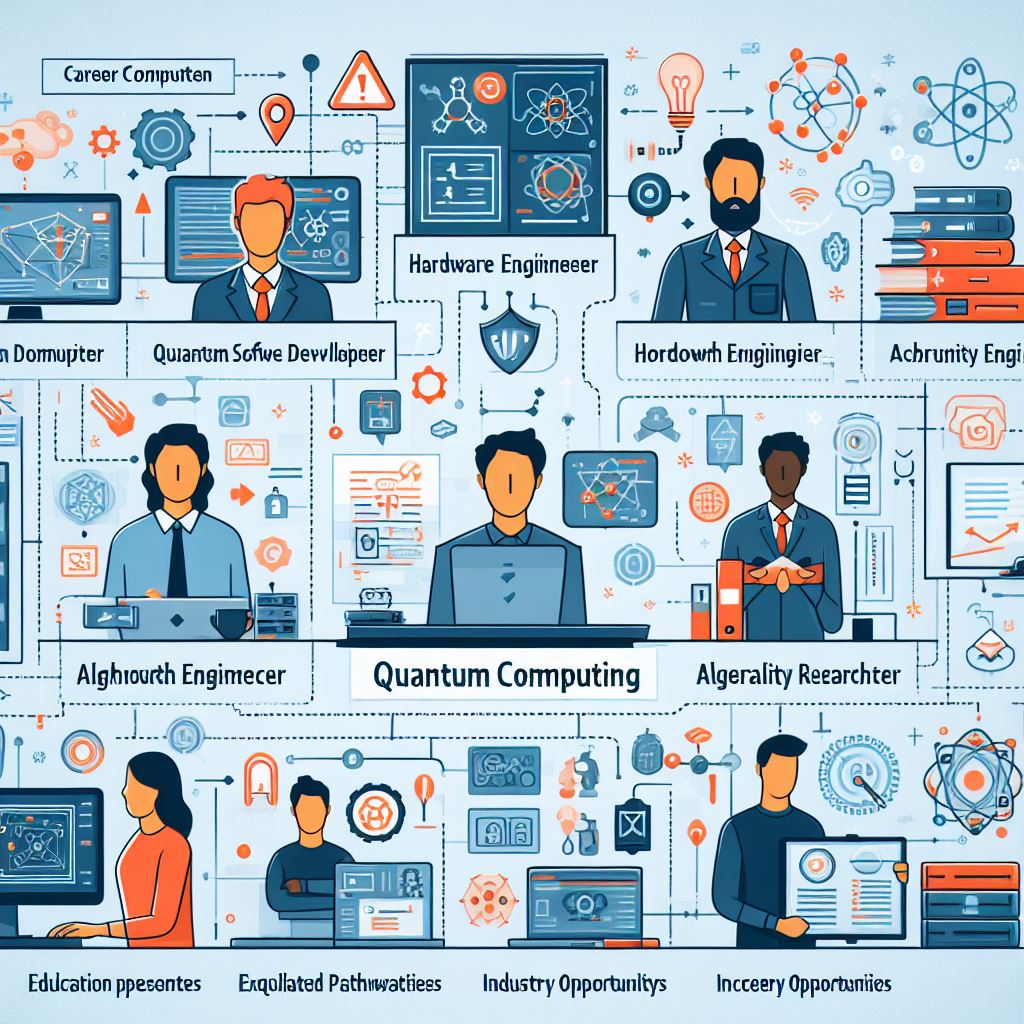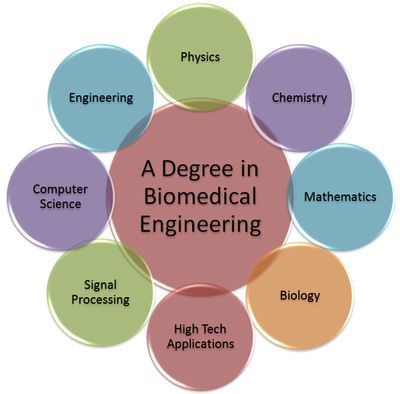Introduction to quantum computing
Traditionally computers represent information either as ‘0’ or ‘1’. ”0′ and ‘1’ are called states. Quantum computing use qbits. qbits can exist in multiple states simultaneously due to the phenomena of superposition and entanglement.
Superposition means that the qbit can be ‘0’ and/or ‘1’ simultaneously. This characteristic gives qbit the ability to perform certain calculations faster than traditional computers.
Entanglement means that the qbits are linked together. Any operation or measure on one of the qbit affects the state of the other.
The key distinction allows quantum computers to execute computations at a faster rate, than traditional computers positioning them as ideal, for addressing challenges that were previously deemed impossible to overcome.
Quantum computing examples
While quantum computers are still, in the stages of development there are some real-world instances where qubits play a role in specific applications.
Drug Discovery
- Mimicking molecules: Pharmaceutical companies utilize quantum computers to simulate the actions of molecules aiding in the creation of drugs and materials with particular characteristics. For instance, IBM collaborated with Merck to explore protein folding, an aspect of grasping drug interactions within the body.
- Enhancing drug development: Quantum algorithms can sift through data to pinpoint drug candidates and forecast potential side effects streamlining the development process.
Material Sciences
- Innovating materials: Researchers leverage quantum computers to devise novel materials featuring desired attributes like superconductors with operating temperatures or lightweight yet durable alloys for aerospace endeavors. Google teamed up with Boeing to delve into using quantum algorithms for optimizing aircraft designs.
- Deciphering materials behavior: By simulating materials at a level using quantum computers insights into their traits and responses under varying conditions can be gained, driving progress in fields such, as batteries and solar technology.
Finance
- Portfolio refinement: Quantum algorithms analyze data and market trends to propose investment strategies and enhance risk management. JP Morgan and IBM have joined forces to delve into the realm of quantum computing, for refining portfolio optimization techniques.
- Fraud detection: When it comes to detecting fraud quantum algorithms play a role in sifting through transaction datasets to pinpoint irregularities that hint at potential fraudulent activities. This aids institutions in bolstering their security protocols.
Other examples
In the realm of cryptography, quantum computers are not being scrutinized for their ability to crack existing encryption methods. Also for their potential in creating new impenetrable cryptographic systems rooted in quantum principles.
While in its stages research is delving into how quantum algorithms can revolutionize machine learning models by effectively processing intricate data sets and uncovering concealed patterns.
Furthermore, quantum algorithms stand poised to streamline logistics networks tackle routing challenges, and optimize scheduling tasks thereby enhancing efficiency across industries.
It’s worth noting that these examples merely scratch the surface of the flouring field of quantum computing. While widespread integration may be on the horizon the transformative power of qubits, across sectors remains indisputable.
Education pathway to quantum computing
If you are keen on entering into the field of quantum computing and becoming future-ready, then you need to be strong in STEM. Education and certifications go hand-in-hand. Apart from education and certifications, you should also participate in boot camps if you are looking to upskill or transition into a career in quantum computing. You need to start cultivating a deep understanding of quantum principles and develop proficiency in essential tools and technologies.
| Programme | Description |
| Undergraduate | 11th and 12th with Physics and Maths |
| Graduate | Degree in computer science with a major in Physics and Maths. |
| Programming | Qiskit (Python), Q# (Microsoft), Cirq (Python), TensorFlow Quantum (Python), OpenQASM (IBM), Quil (Rigetti Computing), Scaffolder, QuantumCircuit (PennyLane) |
| Masters | Degree in related fields like quantum information science, quantum engineering or computational physics is optional but will improve job prospects |
| Online courses and boot camps | Platforms like Coursera, edX, and Udacity offer online courses in quantum computing fundamentals, programming, and applications. |
| Certifications | Certifications in quantum computing from institutions like IBM Quantum and Microsoft Quantum |
| Soft skills | Problem-solving, Analytical, Adaptable, Fast learner |

Exciting career opportunities
Career outlook and growth opportunities in quantum computing look promising. There is a demand for talent in the rapidly growing world of quantum technologies and quantum computing. The job requirements keep evolving, however, there is a good demand under various categories like hardware, software, cybersecurity, research etc. Let’s look at the various job roles and responsibilities.
Hardware:
- Quantum Hardware Engineer: Creating, constructing, and experimenting with quantum computing hardware elements like superconducting qubits, cryogenic systems, and control electronics.
- Quantum Instrumentation Engineer: Tasked with designing and upkeeping tools used to measure and control qubits, such as lasers, microwave sources, and detectors.
- Quantum Materials Scientist: Involved in exploring and innovating materials that are ideal, for constructing advanced quantum computers.
Software:
- Quantum Software Engineer: Write and debug code for quantum algorithms and applications, using specialized programming languages and frameworks.
- Quantum Algorithm Researcher: Develop new quantum algorithms for solving complex problems in various fields like drug discovery, finance, and logistics.
- Quantum Compiler Engineer: Create compilers that translate high-level quantum programs into instructions for specific hardware platforms.
Other Roles:
- Quantum Applications Specialist: Translate business problems into suitable quantum algorithms and develop prototypes for specific applications.
- Quantum Educator: Teach quantum computing concepts and train professionals in this emerging field.
- Quantum Policy Analyst: Analyze and advise on the ethical, legal, and societal implications of quantum computing advancements.
Emerging Opportunities:
- Quantum Security Specialist: Develop solutions to protect quantum computers and information from cyber threats.
- Quantum Cloud Architect: Design and manage infrastructure for delivering quantum computing services over the cloud.
- Quantum Business Developer: Identify and develop new commercial opportunities for quantum computing across various industries.
Tips and Tricks to stay updated in quantum computing
To stay informed, curious, and updated follow these points to get ahead in the game mind-bending world of quantum computing.
Networking and Professional Development:
- Join quantum computing communities on platforms like LinkedIn, Reddit, and Discord.
- Attend quantum computing conferences, workshops, and meetups in your location.
- Join professional organizations like the Quantum Computing Alliance (QCA) and the Quantum Economic Development Consortium (QED-C).
Industry and Research Opportunities:
- Technology Companies: IBM Quantum, Google Quantum AI, Microsoft Quantum, Rigetti Computing
- Government Agencies: NASA Quantum Computing, National Quantum Initiative (NQI)
- Academic Institutions: Quantum computing research labs and departments in universities worldwide
- Startups: Quantum computing startups focusing on various applications and technologies
Gear Up
Math, physics, and computer science are your BFFs. Get comfortable with these subjects, especially quantum mechanics. Bonus points for learning Python, Qiskit, and other quantum programming languages.
Be a Knowledge Sponge
Quantum computing is evolving at warp speed. Stay curious, explore online resources, attend workshops, and join communities to keep your knowledge sharp.
Hands-on is Key
Don’t just learn, do! Participate in hackathons, internships, or research projects to gain practical experience and build your portfolio. Every quantum playground is a welcome adventure.
Think Beyond Code
Quantum computing isn’t just about algorithms. Think about the problems you want to solve, from drug discovery to AI, and explore how quantum tools can be your secret weapon.
Be a Team Player
Quantum is a collaborative game. Network with other enthusiasts, experts, and companies. Together, you can build the future of this mind-blowing technology.
Embrace the Unknown
Quantum computing is still young, so expect challenges and uncertainty. But hey, that’s where the fun lies! Be bold, be innovative, and be ready to push the boundaries of what’s possible.
Summary
In our exploration it’s clear that the quantum computing presents thrilling career paths, for those who’re passionate about advancing technology. Whether your interests lie in software creation, hardware design, algorithm investigation, cryptography or information theory there’s a spot for you within the rapidly growing field of quantum computing. By developing the skills seeking education connecting with experts in the field and keeping up to date on industry developments you can embark on a rewarding career journey, in quantum computing that will help shape future technological advancements for generations to come.
If you are interested in reading about other careers, do visit the link here
FAQs
1. What is quantum computing?
Quantum computing utilizes the principles of quantum mechanics to perform calculations in a fundamentally different way than traditional computers. It uses qubits, which can exist in multiple states simultaneously (superposition), allowing for parallel processing and potentially solving problems intractable for classical computers.
2. What are the benefits of quantum computing?
Potential benefits include:
- Solving complex problems: Drug discovery, materials science, financial modeling, and AI could be revolutionized by quantum algorithms’s ability to tackle previously unsolvable problems.
- Faster computations: Certain calculations could be performed exponentially faster on quantum computers compared to classical ones.
- Breakthrough innovations: Quantum computing has the potential to unlock new discoveries and applications across various fields.
3. When will quantum computers be available?
While functional quantum computers exist, they are still in their early stages of development. Widespread adoption is likely years or even decades away, but research is rapidly progressing.
4. What are some current applications of quantum computing?
While large-scale applications are still under development, some early uses include:
- Simulating molecules: Designing new drugs and materials with desired properties.
- Optimizing financial models: Identifying better investment strategies and managing risks.
- Cryptography: Developing new, unbreakable encryption methods based on quantum principles.
5. What are the challenges facing quantum computing?
Challenges include:
- Maintaining qubit coherence: Qubits are fragile and prone to errors, requiring sophisticated control and error correction techniques.
- Scaling up: Building larger quantum computers with many qubits while maintaining coherence is a significant engineering challenge.
- Developing algorithms: Finding efficient and practical quantum algorithms for specific problems is an ongoing research area.
6. What skills are needed for a career in quantum computing?
Strong foundations in:
- Math: Especially linear algebra and probability theory.
- Physics: Understanding quantum mechanics is crucial.
- Computer science: Programming skills in languages like Python and Qiskit are valuable.
- Problem-solving and analytical skills: Essential for tackling challenging problems.
7. Can I learn about quantum computing without a degree?
Absolutely! Many online resources, tutorials, and courses cater to beginners. Passion and a willingness to learn are key.
8. What are the ethical considerations of quantum computing?
The potential for breaking current encryption raises concerns about privacy and security. Ethical frameworks and regulations need to be developed alongside the technology.
9. Will quantum computers replace classical computers?
No, they are likely to complement each other. Quantum computers excel at specific problems, while classical computers remain efficient for others.
10. What is the future of quantum computing?
The future is full of possibilities! As research progresses, we can expect breakthroughs in various fields, leading to significant advancements in science, technology, and society.





